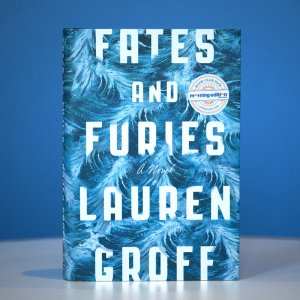 Fates and Furies was redrafted by Lauren Groff fifteen times, and you can tell. There are a lot of concepts and references in this story (some more fully formed than others) that end up distracting more than imbuing the story with alternate interpretations or well-wrought metaphors.
Fates and Furies was redrafted by Lauren Groff fifteen times, and you can tell. There are a lot of concepts and references in this story (some more fully formed than others) that end up distracting more than imbuing the story with alternate interpretations or well-wrought metaphors.
The novel tells the story of a marriage from the husband’s perspective first (‘Lotto’ or Lancelot) in an excruciating 200 pages of narcissism, then transitions to ‘Furies’ which tells the story of the same marriage from the perspective of the wife, Mathilde. Neither are very sympathetic or likeable. The novel makes one point loud and clear: narrative tells one story, while lived experience tells a more real, complex story.
Ultimately, as you might expect, the second section is a significant departure from the first half, but it shifts the narrative in ways you wouldn’t expect. The marriage is full of secrets, but ultimately I think the revelations hobble the novel’s power to speak of marriage in general by making it more about extremes and eccentricities.
This has been on my list for a long time, but ultimately I’m glad I read Florida first because that became, solidly, one of my favourite books last year and if I’d read Fates and Furies first instead I probably wouldn’t have bothered with anything else by Lauren Groff. Don’t get me wrong, she’s immensely talented, this story just did very little for me.